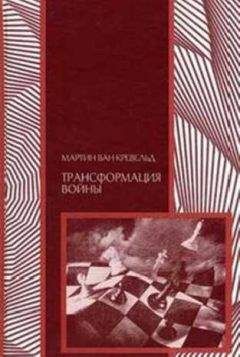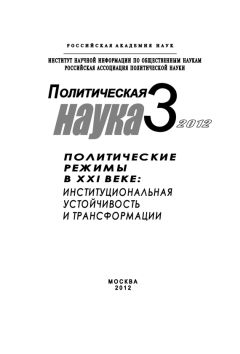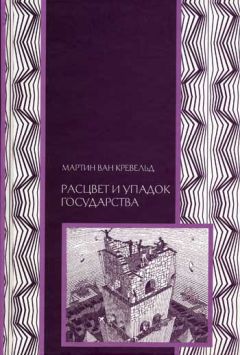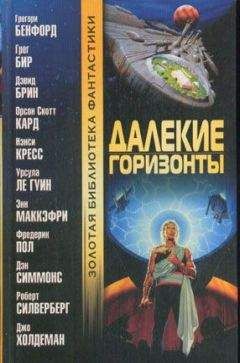996
Об этих методах см.: R. Naylor "The Insurgent Economy: Black Market Operations of Guerrilla Organizations," Crime, Law and Social Change, 20, 1, July 1993, p. 13―51; обсуждение данной ситуации см.: К. Maguire, "Fraud, Extortion and Racketeering: The Black Economy in Northern Ireland," Crime, Law and Social Change, 20, 4, ноябрь 1993, p. 273-292.
См.: С. Clapham, Africa and theInternational System: The Politics of State Survival (Cambridge: Cambridge University Press, 1996), esp. pt. 3.
CNN, World Report, 30 September 1997.
О США см.: J.I. Bayne and D.M. Freeman, "The Effect of Residence Enclaves on Civic Concern," Social Science Journal, 32, 4, 1995, p. 409― 421.
Гегель Г. В. Ф. Философия права. §§ 202, 205, 294; О. Hintze Der Beamtestand (Leipzig: Thieme, 1913), p. 17; M.Weber, Economy and Society (London: Allen and Unwin, 1923), p. 249ff.
Среди самых ранних критиков были: Е. Strauss, The Ruling Servants, (London: Allen and Unwin, 1961); P. Blau, Formal Organizations (London: Routledge, 1963); M. Crozier, The Bureaucratic Phenomenon (London: Tavistock, 1964) и др.
P. Rathe, "The Primacy of Politics in Classical Greece," American Historical Review, 89, 1984, p. 265-293.
Например, атомная энергетика Франции: A. Rosenbaum, "The Grand Alliance," World Link, May-June 1996, p. 89.
См. подробнее в: Business Week, 5 April 1993, p. 68―69.
Statistical Census of the United States 1992 (Washington, DC: US Government Printing Office, 1992), p. 989.
The Economist, 4 September 1993, p. 29.
D. Geddes, "The Return of Orthodoxy," World Link, May-June 1996, p. 84.
Ibid, p. 129.
R.W. Thurston, "The Soviet Family During the Great Terror, 1935-1941," Soviet Studies 43, 3, 1991, p. 553-574.
S.R. Furlong, "The 1992 Regulatory Moratorium: Did It Make a Difference?", Public Administration Review, 55, 3, May-Tune 1995 p. 254-262.
CNN, World Report, 22 April 1995.
Herald Tribune International, 11 February 1998, p. 7.
H. Weiss, "Ideologic der Freizeit im Dritten Reich: die NS-Gemeinschaft Kraft durch Freude", Archiv fur Sozialgeschichte, 33, 1993, p. 289― 303; о подобном же развитии событий как минимум в одной демократической стране см.: S.G. Jones, "State Intervention in Sport and Leisure in Britain Between the Wars", Journal of Contemporary History, 22, 1, 1987, p. 163-182.
См. пример, приведенный в работе: W.W. Kulski, "Can Russia Withdraw from Civilization?" Foreign Affairs, 28, 4, October 1950, p. 639.
CNN, World Report, 18 May 1996.
Подобная попытка описывается в работе: С.С. Moskos, A Call to Civic Service (New York: Free Press, 1988).
См.: M.R. Gordon and E. Trainor, The Generals' War: The Inside Story of the Conflict in the Gulf (Boston: Little, Brown, 1995), p. 379-380.
См.: М. van Creveld, "Conscription Warfare: The Israeli Experience," in R.G. Fu,rster, ed., Die Wehrpflicht: Entstehung, Erscheinungs for men und politische-militarische Wirkung (Munich: Oldenburg Verlag, 1994), p. 227-234.
Интервью с подполковником доктором Р. Довратом, главой отдела Армии обороны Израиля, занимающимся исследованием поведения: Yedi'ot Acharanot (наиврите), 19 апреля 1996 г., с. 10―16; интервью с министром обороны Израиля И. Мордехаем, Yedi' ot Acharanot (наиврите), 7 августа 1996 г., с. 12.
См.: F. Parkinson, "Ethnicity and Independent Statehood," р. 322―345; R.H. Jackson, "Continuity and Change in the State System," p. 348 ― обе статьи в сб.: Jackson and James, States in Changing World.
О попытке использования СНГ для спасения того, что еще можно было спасти из советской экономики см.: R.E. Ericson, "Economics," in T.J. Colton and R. Levgold, eds., After the Soviet Union: From Empire to Nations (New York: Norton, 1992), p. 49-83.
См.: S.Peres, The New Middle East (London: Weidenfeld and Nicolson, 1996).
См.: S.M. Lipset, The Confidence Gap (Baltimore: Johns Hopkins University Press, 1987).
См.: М. Dogan, "The Decline of Nationalisms Within Western Europe," Comparative Politics, 26, 3, 1994, p. 281―305; также см.: E. Pond, "The Escape from History, "World Link, January-February 1998, pp. 64-70.
О Западной Европе см. прежде всего: W. Wallace, "Rescue or Retreat: The Nation State in Western Europe, 1945―1993," Political Studies, 42, 1994, pp. 52―76; о Восточной Европе см.: Y. Plasser-Fritz
"Politische SystemunterstUtzung und Institutionvertrauen in den OZE Staaten," Oesterrreichische Zeitschrift fur Politikwissenschaften, 23, 4, 1994, p. 365―379; подробное исследование одной развивающейся страны: A.N. Longha, "Citizenship, Identity and Questions of Supreme Loyalty: The Case of Kuwait," Forum for Development Studies, 2, 1995, p. 197-217.
Одно из последних исследований: С. Tilly, "War Making and State Making as Organized Crime" in Evans, et al., Bringing the State back in, p. 169-191.
О форме, которую могут принимать такие организации, см.: К. Ohmае, "The Rise of the Region State," Foreign Affairs, 72, 2, Spring 1993, p. 78―87; и на другом конце спектра: G. Gottlieb, "Nations Without States," Foreign Affairs, 73, 3, May-June 1994, p. 100-112.
J. Mathews "Power Shifts", "Foreign Affairs," 76, 1, January-February 1997, p. 50-66.
Одним из немногих исключений является Норвегия, которая, плавая в озере нефти, продолжает держать их на плаву, но только ценой деиндустриализации.
О приватизации правосудия и особенно тюремных систем в Америке см.: R. Fitzgerald, When Government Goes Private: Successful Alternatives to Public Services (New York: Universe Books, 1988), ch. 3.
В своем интервью «Панораме» 14 сентября 1997 г. генерал Лебедь заявил, что из 100 портативных ядерных устройств, произведенных для советских сил специального назначения, местонахождение двух третей неизвестно.
См.: S. Sassen, Losing Control? Sovereignty in the Age of Globalization (New York: Columbia University Press, 1996), ch. 2.
См., напр.: A. TofflerandH. Toffler, The Third Wave (NewYork: Morrow, 1980); Reich, The Work of Nations, особенно Part 3.
Среди прочих (лат.). ― Прим. пер.
Об этих трех возможных исходах, которым даны названия «postmodern state», «premodern state» и «modern state», см.: Н. Н. Holm and G. Sorenson? "International Relations Theory in a World of Variation" in Holm and Sorenson, eds., Whose World Order? Uneven Globalization and the End of the Cold War (Boulder: Westview Press, 1995), p. 202ff.




